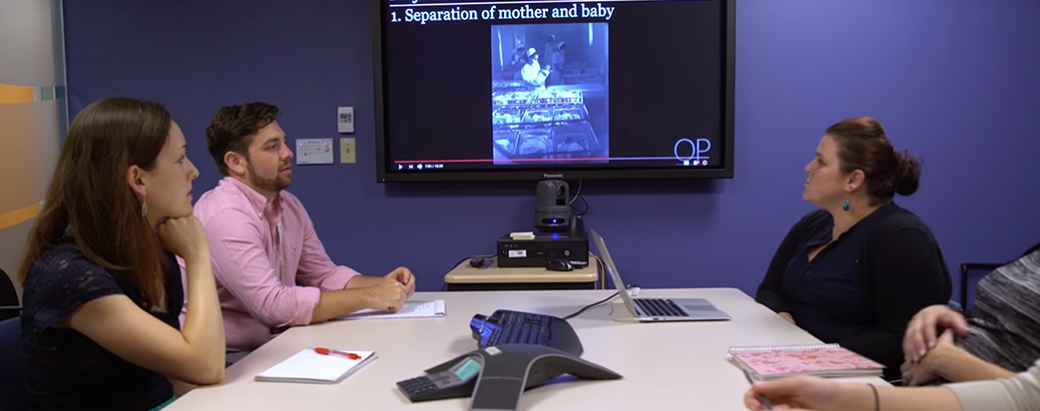
About the Project
This project is one of the 2017 WISE Awards finalists.
In partnership with Boston Children’s Hospital, OPENPediatrics has developed high-quality interactive medical simulators that help people learn how to use mechanical ventilators and peritoneal dialysis to treat real-world problems in a safe, simulated environment, using the modern educational strategy of “serious gaming”. These innovative tools are free for everyone to access and use, and are currently helping to educate doctors, nurses, respiratory therapists, and other healthcare students and personnel around the world.
Context and Issue
Each year, more than six million children die worldwide. The leading cause of child mortality is not pneumonia, cholera or malaria—it is lack of access to lifesaving information on how to best care for children with these and other deadly conditions. Innovative life support technologies such as breathing machines and kidney machines help to save lives every day around the world, but significant education and practice are necessary to use them safely and effectively.
The current paradigm for sharing medical knowledge and educating clinicians is constrained by outdated modes of communication and an antiquated apprenticeship model that cannot scale to meet global need. Children around the world receive vastly different standards of care because the latest scientific knowledge and best practices remain trapped within the walls of large hospitals and research institutions. This is especially true for life support technologies such as mechanical ventilation and peritoneal dialysis, where equipment and materials may be available across different resource settings, but expertise and education are not as well distributed.
Solution and Impact
OPENPediatrics aims to improve pediatric care worldwide by providing new ways to learn and share knowledge. By harnessing the latest concepts in learning technology and principles of adult learning, it is now possible for OPENPediatrics to effectively scale an intervention across the globe to address these disparities in all resource environments.
The wide availability of the Internet makes it easier than ever to share information, but it remains difficult to find high-quality education on complex medical topics, such as using life support technology to care for sick children. The airline and defense industries have had great success in using interactive simulators to help individuals practice high-stakes, complex tasks in a safe environment. OPENPediatrics was inspired to partner with game developers to make its own “serious games”, which are freely accessible online through OPENPediatrics.org.
OPENPediatrics has initially focused on two of the most common life support technologies used worldwide – mechanical ventilation (breathing machines) and peritoneal dialysis (a type of kidney replacement treatment used in a wide range of resource settings). Users do not need prior knowledge or experience with these topics – the simulators teach users the fundamentals and allow for practice with real-life scenarios, while providing feedback and advice. This project is innovative in many ways. Online medical simulators focused on teaching about the care of children are still rare. OPENPediatrics made such high-quality modern learning technologies freely and openly available online worldwide. The OPENPediatrics platform also contains many other unique, high-quality, evidence-based learning resources (videos, written topic overviews, and other tools) and social networking technologies to help users educate themselves and share knowledge.
Since launching the first OPENPediatrics website in 2012, the platform’s resources have been accessed over 1 million times by users in 145 countries around the world. Its medical simulators alone were accessed over 70,000 times in the last six months. In addition to continuously monitoring quantitative data in the form of user activity on the OPENPediatrics.org website, and built-in assessments within the simulators that allow OPENPediatrics team to measure successful completion of the simulator activities, the team routinely engage with front-line medical providers through surveys and personal communications to hear about how OPENPediatrics’ educational tools are directly impacting patient care. OPENPediatrics also partners with local champions in other countries who use our simulators as part of their educational efforts. A Nursing education program in South Korea has adopted OPENPediatrics’ mechanical ventilator and peritoneal dialysis simulators as a key part of their critical care education, and they have demonstrated gains in critical thinking and problem solving for hundreds of participants.
Future Developments
To date, OPENPediatrics and the medical simulators have been funded predominantly through direct support from Boston Children’s Hospital, and through individual philanthropic donations.
As OPENPediatrics continues to grow, it expects to expand its sources of support, through such avenues as expanded support from the philanthropic community, corporate sponsorship opportunities, contributions from partner hospitals worldwide, and revenues from fee-based Continuing Medical Education courses. In terms of furthering the Serious Gaming approach to teaching about life support technology, OPENPediatrics is nearing completion on its third medical simulator, which focuses on hemodialysis (another type of kidney replacement machine), and aim to release this on OPENPediatrics.org in early 2017.
OPENPediatrics is also in the midst of discussions with collaborators around the world in order to plan for what other topics and technologies would benefit from this educational approach.


